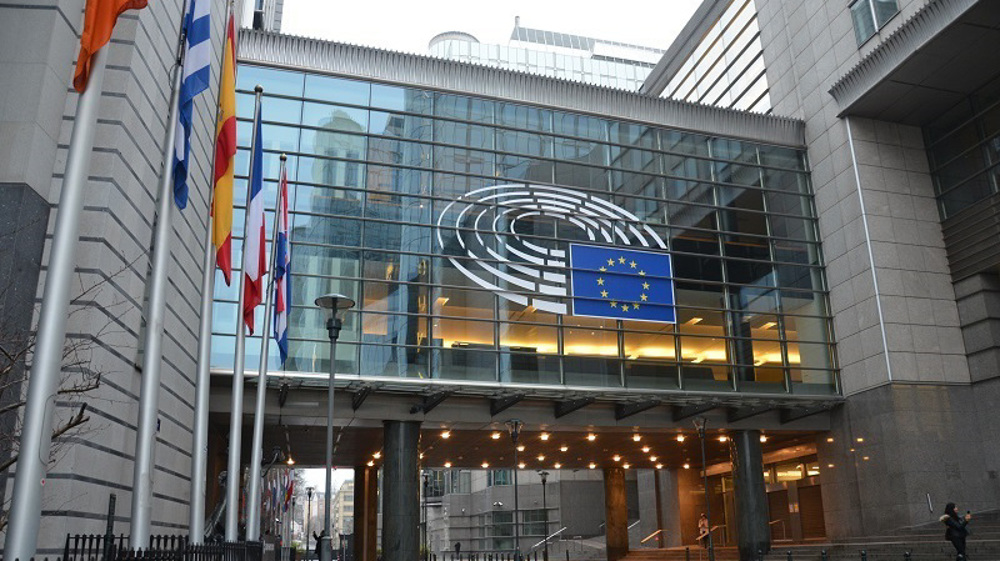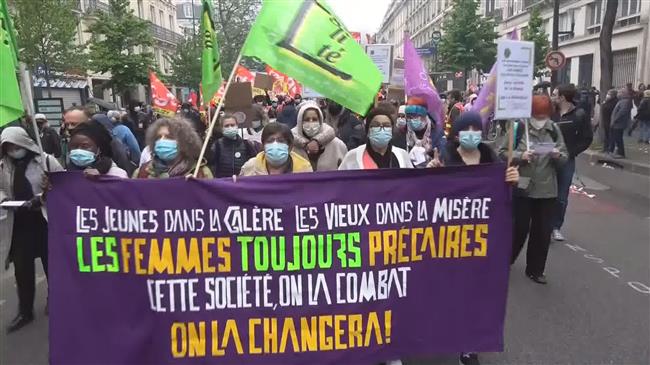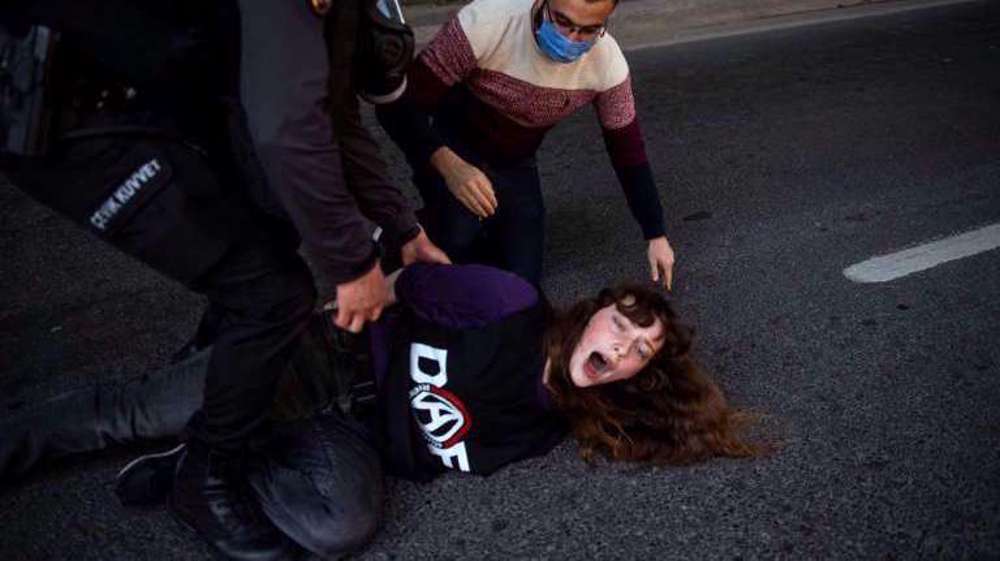Workers mark May Day with protest rallies in France, Spain, Germany
Protests erupted in a number of European countries on May Day as demonstrators called for better working protections in the midst of the COVID-19 pandemic and the economic crisis attributed to it.
Protesters took to the streets of France, Spain and Germany on May 1, which marks International Labor Day commemorating laborers and the working class.
Protest rallies typically occur every year in many countries on May Day, but they took on a new meaning this year after months of lockdowns and economic hardships that have impacted the livelihoods of most employees and workers.
In French cities, demonstrators clashed with police, breaking windows and starting fires.
Police responded by firing tear gas and arresting dozens of the protesters.
“We have many reasons to come and rally -- the health and social situations and the general impoverishment of society,” said Ivan Gineste, 50, who works in the southeastern city of Lyon.
Members of the yellow vest movement, which held regular rallies against President Emmanuel Macron's polices two years ago before largely fizzling out, could also be spotted at protests up and down the country.
In Germany, demonstrators took to the streets in several cities, throwing fireworks, bottles and rocks in protests over issues ranging from social inequality to rising rents to the country's immigration policy and opposition to coronavirus curbs.
Police responded with pepper spray and detentions at the second May Day protests since the start of the pandemic. The crowds were larger this year despite social distancing requirements.

Thousands also rallied in more than 70 cities across Spain in the first Labor Day demonstrations since the pandemic began.
The main demonstration in Madrid, which was limited to 1,000 people, began at midday under the slogan “now it's time to deliver,” with the participants marching from the town hall to the city's Puerta del Sol square.
Seven government ministers attended the march, including Labor Minister Yolanda Diaz as well as representatives of the three left-wing parties running in Tuesday's regional elections in Madrid.
Addressing the march, Diaz said employment was key to overcoming the economic crisis.
“The crisis has made us face up to an outdated labor model, based on casual work, seasonal employment and inequality... which is exactly what the labor ministry has started to change,” she said.
Iran warns Israel’s recognition of Somaliland aims at destabilizing entire region
The Year That Was: ‘Warmongers’ who mocked intl. law to prop up wars in 2025
Forged by fire: Iran’s military preparedness at an all-time high after 12-day war
North Korea test launches long-range cruise missiles
Israeli forces abduct five youths in fresh southern Syria incursion
The Year That Was: 'Newsmakers' who shaped headlines in 2025 – for good or bad
Pentagon loses track of billions in arms sent to Israel during Gaza genocide: Report
Iran FM underlines Yemen's territorial integrity in talks with Saudi, Emirati counterparts











 This makes it easy to access the Press TV website
This makes it easy to access the Press TV website